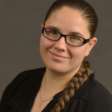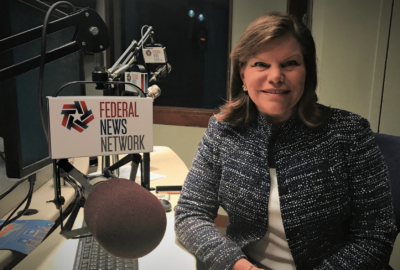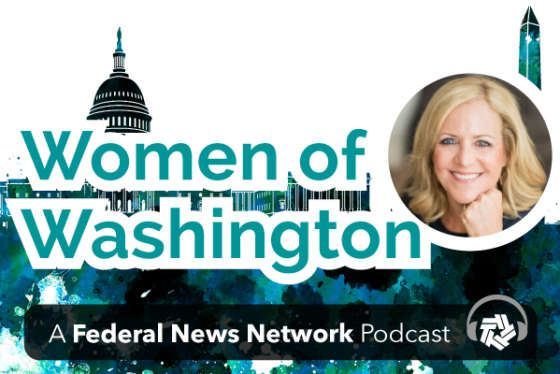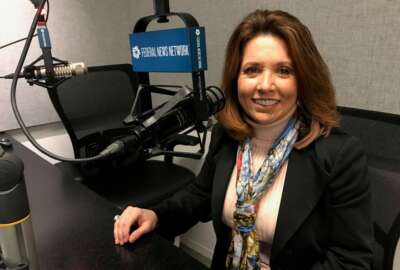
Opportunity calls: It’s time to say ‘yes’
Maria Vargas, director of the Better Buildings Challenge at the Energy Department, joined Women of Washington to promote energy efficiency across organizations ...
Best listening experience is on Chrome, Firefox or Safari. Subscribe to Women of Washington’s audio interviews on Apple Podcasts or PodcastOne.
When it comes to efficiency, in all areas of life, the details matter.
On this week’s episode of Women of Washington, host Gigi Schumm welcomed Maria T. Vargas, director of the Better Buildings Challenge at the Energy Department. The department is working with leading organizations in the public and private sector to cut down on wasted energy.
“They’ve all stepped forward and said ‘we’re going to reduce 20 percent of our energy use across our facilities. We’re going to share what we’re doing with you. We’re going to share with you what works and what doesn’t’,” she said. “[It’s] in the hopes that all organizations can benefit from what it is they’re doing and the lessons they’re learning.”
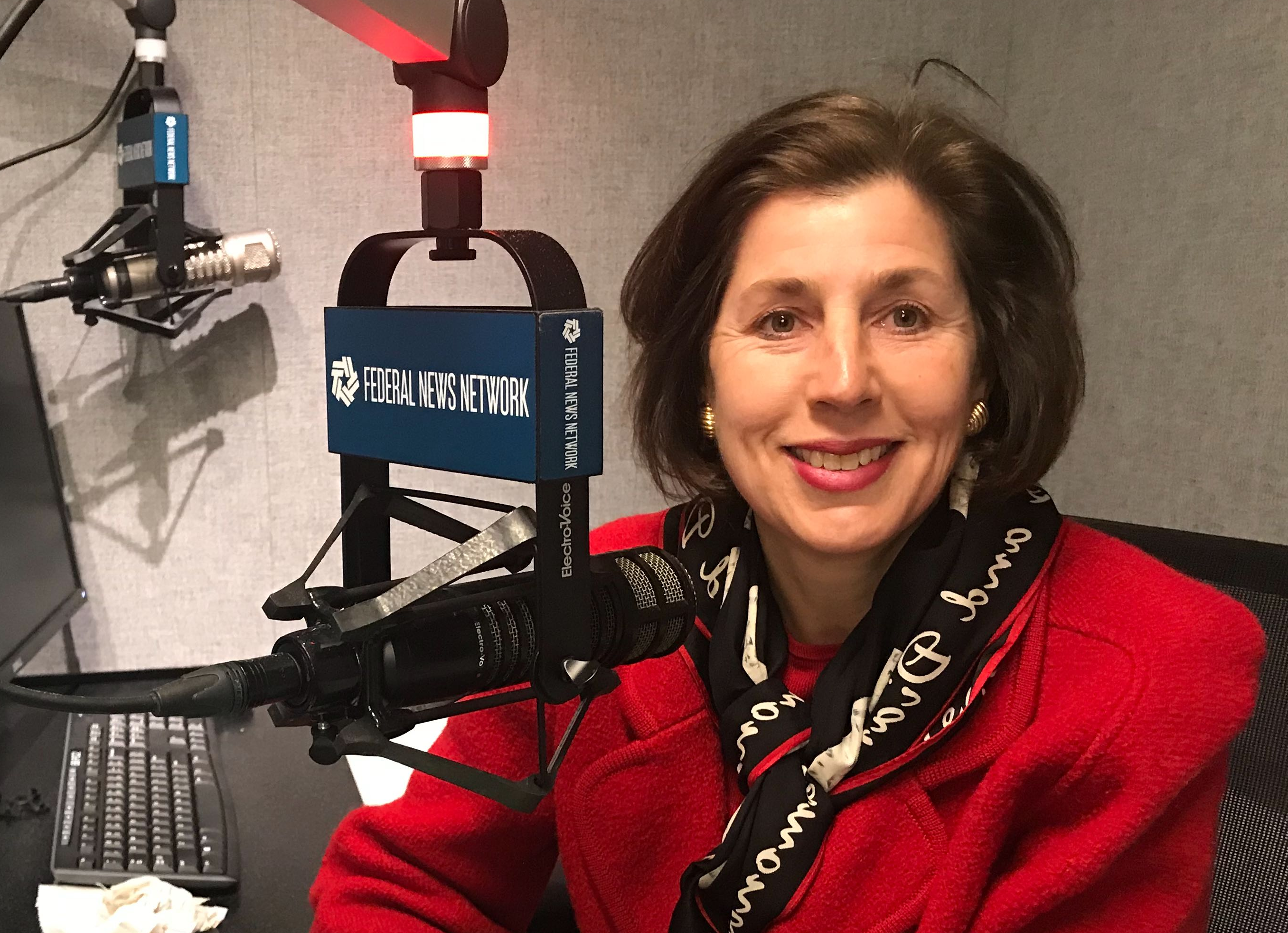
She said if the United States could reduce its energy by 20 to 30 percent, we could save tens of billions of dollars per year. That could go to better classrooms, grocery stores, multi-family homes and better manufacturing facilities. It’s a wonderful opportunity as a country to protect the environment and lead the way to efficiency, she said.
There are a couple of barriers to maximizing that efficiency though. Vargas said one step is getting past the belief that energy is an “overhead cost” and not one that can be reduced. Another is convincing senior management to make the commitment across entire companies and government.
“There’s also the people side. A lot of the organizations that we’re working with, true leaders in the space, are getting their employees and their customers involved,” she said. “It’s a change not only to equipment that you have and how you use it, but it’s also how to make sure that the message is getting out to the people who work there, and possibly shop, stay or go to school in the building being used.”
To take that leap, an organization must truly understand how their buildings are performing and what investing in opportunities for improvement can yield.
Vargas said making the commitment helps an organization become more resilient, employs a stronger workforce and helps the community in the long run.
Pursuing energy, environment efficiency
Vargas said she has always been interested in the environment, even at a young age. That’s what brought her East from Salt Lake City, Utah, where she grew up in the Greek community. She said her parents, both in the medical field, seized an opportunity when they both landed in Utah, and she said she had to follow in their footsteps.
“It’s what I’ve done in my life too … to have a sense of where you want to go, but then follow an opportunity which presents itself, that you may not have seen in a couple years or even a couple months prior, and have that inform some of the decisions,” she said.
Living near some of the national parks and having her eyes opened to natural resources may have played a small part. She said she learned to appreciate them and wanted to pursue a career where she could protect them for this generation and generations to come.
Vargas began her career in the private sector, but she said that didn’t last long. She wanted to do more and eventually that landed her on a small team — at the time anyway — at the Environmental Protection Agency working on issues relating to climate change and the depleting ozone layer. After moving to Oregon and receiving her master’s degree, she returned to the D.C. area and began running the EPA’s new Energy Star program, and that’s what introduced her to a decades-long career focused on energy efficiency.
Now, there are a lot of appliances and equipment that we don’t think about that carry the Energy Star label. She said the company was created as a way for consumers to voluntarily choose more efficient items.
“And now that the Energy Star labels are on 60 to 70 different kinds of things … as well as new homes and commercial buildings, it is a platform that the federal government can be very proud of,” Vargas said.
Joining the Energy Department was just a natural progression.
Mentors, advice
Vargas praised one particular mentor for pushing her, and her team, to think outside of the box and to look at solutions others may not have thought about. She said watching his team and how hard he pushed them to be excellent really stood out to her.
“I think it’s watching people who you respect and admire, and being willing to do the hard work that it takes to be excellent, because it’s easier not to be excellent. It doesn’t take as many hours in the day and it doesn’t make your brain work quite so hard,” she said. “That, I think, made me into the professional that I am today.”
Related Stories
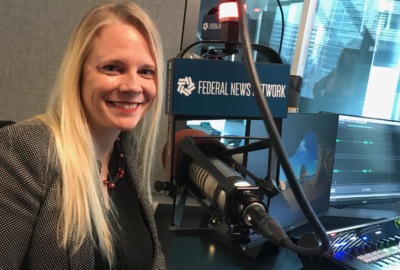
Novelist, int’l security specialist: Follow your passion wherever it leads
Vargas said it’s how you face rejection that really reveals who you are as a person.
If she wasn’t working for the Energy Department, she said she would still be in the public space working to protect the environment, natural resources and the earth in general. But she doesn’t spend too much time thinking about it.
“The path I chose in life was one that afforded me the opportunity to say yes when something very interesting, something I could be passionate about, something I believed in came up,” Vargas said. “It’s something I feel very fortunate to work on. I don’t spend a lot of time looking back, I spend time looking forward.”
She said there are four things in particular she would’ve told her younger self:
- Don’t be so nervous and afraid
- Find a mentor
- You can always learn from the people around you — no matter who they are or what they do
- The world is a wonderful place, if you’re willing to work hard and put in the effort.
Copyright © 2024 Federal News Network. All rights reserved. This website is not intended for users located within the European Economic Area.
Steff Thomas is a digital editor at Federal News Network.

